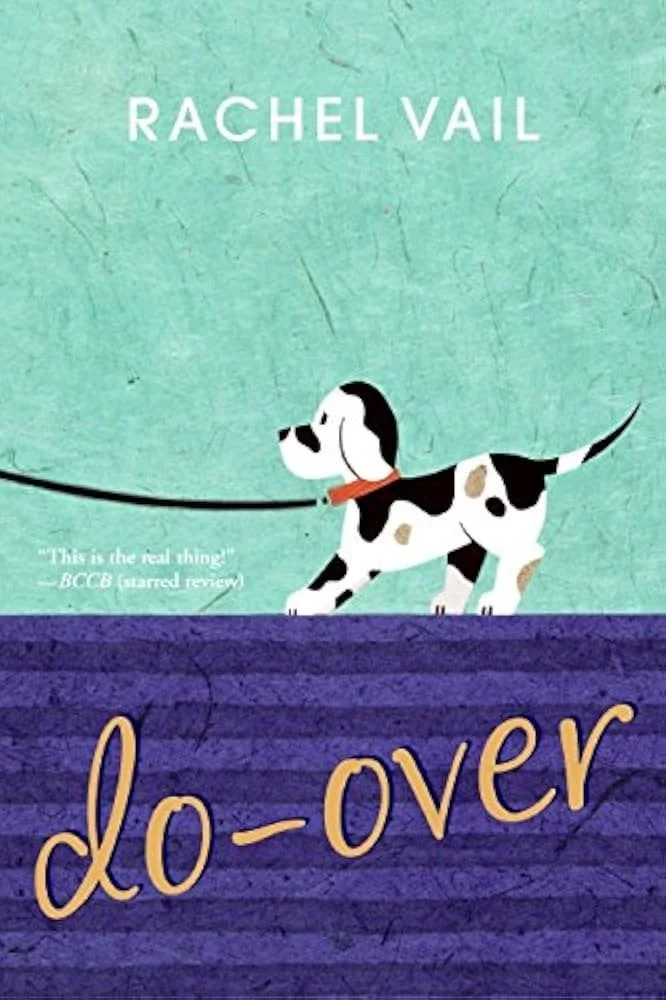The star of this fresh and appealing slice of junior high school life, eighth grader Whitman Levy, appeared briefIy in Vail's first book, Wonder. Here Whit must work through some of life's thornier issues--including his parent's separation and the discovery that his best friend is a bigot. A brief and rather superficial romance with popular Sheila leaves Whit prepared for a real relationship--one based on friendship as well as attraction. That Whit's life is complicated no one will deny, but the breezy narrative, combined with large doses of authentic preteen jocularity, deftly keeps this material from devolving into a whiny problem novel. The honest language never seems out of place coming from an eighth grader--yet it is powerful enough to create a world as richly textured as it is believable. One measure of the success of Vail's well-characterized novel: readers can sense that life goes on here even after the book is closed. — Publishers Weekly
Josie is independent and fierce. She may flirt with boys or kiss them, but it doesn't mean anything, not even with Michael, who's more like a friend-with-benefits. So how can she explain what happens when Carson Gold goes after her? Carson Gold, the hottest senior, the one everyone secretly watches. . . .
Maybe it's the same thing that causes all the girls to stare as he walks by. Or maybe it's something between them, something just he and Josie share.
Could you resist?
It's too much, when love finds you and pulls you under. It's too much, even for Josie.
Edward and Meg are like night and day, oil and water. Meg zigs while Edward zags. How could two such different people be twins? Well, they are, but they don’t have to like it—or each other.
Seventh grade means different schools for the pair: Brainy Meg’s at ultracompetitive Fischer, while Charlton Street Alternative School is the place for freewheeling Edward. Oddly enough, it’s just when Edward and Meg are finally out of each other’s shadows that the trouble begins.
Within just a week, Meg’s aspirations for popularity, imaginary boyfriend, and angst over a terrible yellow ensemble her mother has chosen combine with Edward’s devious planning, lack of singing ability, and top-secret soft spot to set off a showdown the likes of which twindom has never before seen.
How is it, then, that this final showdown is so much fun? Could it be that Meg and Edward are more alike than they thought?
Never mind. Read the book!
The tried-and-true theme of best friends growing apart has been central to many, many YA novels. Vail's bittersweet foray into this familiar territory is an unusually absorbing adventure, thanks to her characteristic honesty and her eye for telling detail. Year-round residents of Nantucket-like Leeward Island, Molly and Vicky have been best friends their entire lives, but the appearance of Grace, a relatively sophisticated summer vacationer, threatens their apparently cozy relationship. However — as the narrative (in the form of Molly's diary entries) gradually makes clear — the girls' longstanding friendship is already fatally flawed. Angry, anguished and intensely possessive, manipulative Vicky employs countless strategies (anything from telling Molly she looks fat to convincing her to drop out of the high school's honor math course) to keep an emotional hold on her “best friend.” Though loyal, empathetic Molly can accommodate a great deal of difficult behavior, Vicky eventually goes too far, unforgivably betraying Molly's trust. That Vicky and Molly's rift is likely to be permanent (and not a spat that can resolved by a good talk and sugary well-wishing) is just one hallmark of the authenticity of this carefully conceived story. — Publishers Weekly
I never say no to a dare, Abigail brags to her bunkmates at Camp Nashaquitsa. And so the dares begin. Play a prank; kiss a boy; tell a secret. But there's one secret she'll never tell. At home, Abigail is a coward. Here at camp, she can be fearless — the Abigail she's always wanted to be. But what can she do when the dares turn cruel?
Jessica and Sheila have been best friends since kindergarten, but on the first day of 7th grade, Sheila dumps Jessica and becomes part of a new clique who humiliates Jessica. If junior high is supposed to be so great, why is Jessica miserable?





